A review of Anutra LA Delivery System
The Catapult Group shares its review of this breakthrough local anesthetic delivery system.
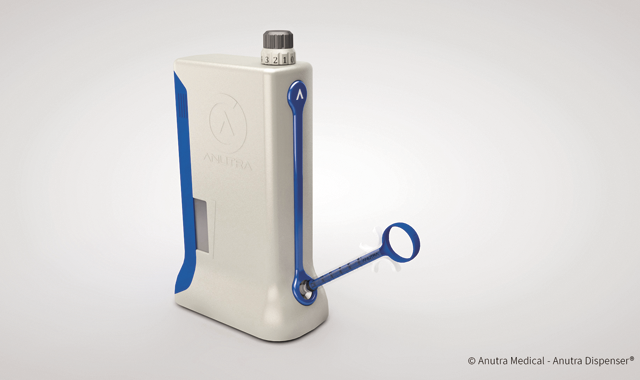
Identifying reliable, efficient and comfortable local anesthetics has been a challenge for dentists since the late 19th century. It all started with injectable cocaine but the obvious issues soon developed.
Procaine was then launched in 1905 and this adopted the term NOVOCAINE and it’s amazing this name is still utilized by many of us today describing a shot! Since Procaine’s launch over 100 years ago, there have been many new anesthetics added into the marketplace and with each, came enhanced improvements. Yet, the injection is still all too often the most dreaded aspect of an appointment and the question poised to The Catapult Group was whether Anutra Medical’s new local anesthetic buffering system could take the “sting” out of what we all do multiple times each day. Now, of course there is more to the story, but the truth for many of us is that we would love to give a truly painless injection.
First off, what is buffering? Buffering is the mixing of sodium-bicarbonate into the dental anesthetic, the combination immediately raises the pH of the anesthetic to neutral. So instead of injecting a solution with a pH similar to vinegar, you are now injecting a solution with a neutral pH and this is so much more comfortable. In addition, because the anesthetic is buffered, it almost immediately crosses the membrane due to lipophilic base material not requiring time to become more neutral in pH. The added CO2 microbubbles (yes you will see them in the syringe) convert the lipophilic base material back into a form that reversibly blocks the Na channels. With all this said, the anesthetic is present in larger concentrations and the action of blocking the nerve channels happens that much faster than traditional non-buffered dental anesthetics. Have I lost you yet? Stay with me!
So, what did The Catapult Group find in regards to Anutra:
• Saved 15-30 minutes per day of chair time (80 percent of the reviewers)
• Achieved more profoundness versus traditional anesthetics (80 percent of the reviewers)
• Achieved improved reliability and hence less stress (78 percent of the reviewers)
• Speed was dramatically different for onset (100 percent of the reviewers)
• After using Anutra, nine out of the 10 evaluators would incorporate Anutra into their practice
• On a scale from one to five, one being no pain and five being painful, the average patient rated the injection with Anutra a 1.7 proving the increased patient comfort.
So the first question to answer, are the injections more comfortable? How important is that to you and your patients? Given that ‘the dreaded shot” is one of the most stressful parts of the procedure, who wouldn’t want to give a far more comfortable injection. Yes, everyone says they give the best shots but truth be told, they can be better! I have been utilizing the Anutra Local Anesthetic Delivery System for more than 4 months. The technique is similar to what you all do now, but the result is just better. I dry the tissue with air (for infiltrations) and place a few drops of the anesthetic on the tissue to leverage the “microbubble effect. I let it sit for 10-15 seconds and that is my topical. For years I have never used traditional Benzocaine as a topical and this either replaces your pharmaceutical topical or adds to it. I then enter the tissue and just pierce the tissue and deposit one drop and you see a small area just “puff”, I wait 5 seconds and then slowly over a minute give the injection. It’s that simple and as noted by The Catapult Group, many of the patients ask, “was that the shot”?
The beauty is that after the one-minute mark, they are feeling the numbness. This is critical for the apprehensive patient (reassures them) and with maxillary teeth, you can begin your preparation. Yes, at the one-minute mark! The evaluators were beginning their work, including the drilling by the three-minute mark for either arch (I wait two minutes for lower bicuspids, one minute for lower anteriors and I base it on bone thickness). This is a key point, you DON’T get up after giving the anesthetic! Just drill away (carefully) and the patient’s stress is gone because they are numb and not waiting and waiting. My patients have often commented that waiting is so stressful, and they love when you say that’s it for the drilling. Can you not relate to hearing this?
In regards to blocks, when using traditional anesthetic, the variability of onset can be up to 15 minutes. How often do you walk into the room and ask, “is your lip numb” and the waiting game begins. So the question to all of, how long do you wait for mandibular block to achieve its maximum effect? With Anutra, if they are not feeling numb in two minutes you missed and it happens to all of us. Why wait five and 10 minutes anymore? The group overall found profound numbness and preparations were begun on average at the four-minute mark after the block was given. Does this make up for a missed block? Honestly, I don’t think so because blocks are based on location, location, location. If you needed to reinject, this was done at the two-minute mark. My technique with Anutra’s buffered solution is to draw back 3 cc, go to your standard area and inject 1.5 cc and then often I may go a bit posterior and higher and deposit the remaining 1.5 cc. I know we all have different techniques but the bottom line, you will know much sooner if they are numb!
Fig. 1
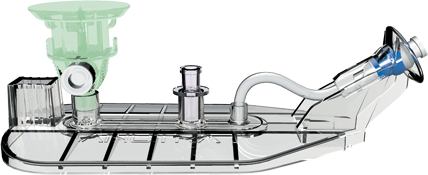
The bottom line was that most of the evaluators (80 percent) found this system to add time in their day and some commented this actually changed their own workflow. For myself, I would in the past inject, go do hygiene exams, and have the patient wait. With Anutra, I inject, drill, and then say to the patient, I have to do some exams and they’re relieved that the drilling is done! This is my mind shift with the product, and for me, the additional $200 of cost per month is well worth it. When I book appointments, I routinely have shortened the procedural time by up to 15 minutes and again, what is that in terms of value adds.
Per the reviewer group, the learning curve is very easy. The kit comes with their dispensing unit (one time purchase and I bring this room to room) and all the goodies to load up and get going for the week. The goodies include a weekly brand new cassette (Fig. 1) with anesthetic and buffering agent, along with 27 or 30 gauge needles and plenty of their disposable syringes (Fig. 3).
Fig. 2
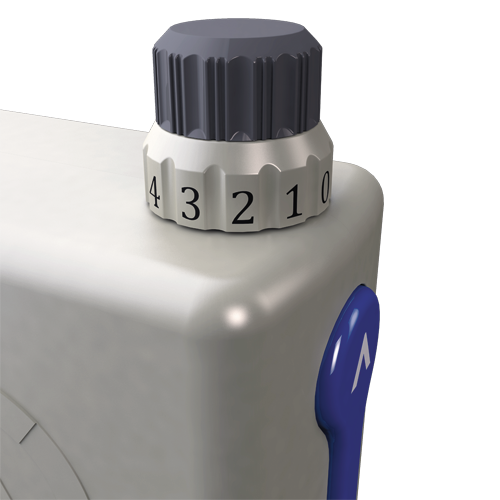
There are videos (along with great explanation videos from Dr. Davidian at Anutramedical.com for each step of loading and priming the system) and this becomes routine by week two. Yes, it’s that easy. With a simple turning of the grey knob on the top of the dispenser, (Fig. 2) the bicarbonate is precisely loaded into the 2% Lidocaine (routinely, I draw back 2.5 cc into the custom syringe). Yes, you do draw the solution into the disposable syringe, shake it about 10 seconds, visualize the microbubbles, and you are ready to go.
With all this said, 90 percent of the reviewer said this technology compliments their practice. The question to all of you is how does this compliment your practice? In my eyes, a more comfortable injection, with faster onset, that allows me to have a more predictable working schedule…that’s a wonderful change in my clinical day.
Fig. 3
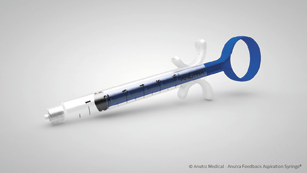
Thanks for reading and if you have any questions, drop me an email at lgrahamdds@aol.com and yes, some things I am slow to change!!
Just a few final comments. The company itself has been ideal to work with. We had initial thoughts about their needles, and they have been changed. You have to love a company that listens to us….the clinicians!

About Anutra LA Delivery System
The Anutra Local Anesthetic Delivery System is a revolutionary way to simply buffer local anesthetics. With buffering, practitioners can be more productive, efficient and profitable while providing a more comfortable experience. In addition, the Anutra Feedback Aspiration Syringe is designed for multiple doses in a single syringe.
For more information, contact Anutra Medical at 844-ANUTRA-1 or visit anutramedical.com
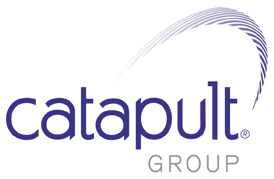
About Catapult Group
Catapult is an organization that consists of more than 50 clinicians spread throughout Canada and the United States. As a company, manufacturers pay a fee for their product to be evaluated and what we deliver are truthful, independent answers from surveys that we develop with them. We have had many products that have either had to be altered before hitting the market or simply never arrived because of our openly honest evaluations. In this way, Catapult assists the manufacturer to avoid potentially releasing a faulty product, or simply a product that needs refinement. Lastly our clients are omnipresent in the industry, small to large, no favoritism, simply reviewing the latest products in our practices.
ACTIVA BioACTIVE Bulk Flow Marks Pulpdent’s First Major Product Release in 4 Years
December 12th 2024Next-generation bulk-fill dental restorative raises the standard of care for bulk-fill procedures by providing natural remineralization support, while also overcoming current bulk-fill limitations.